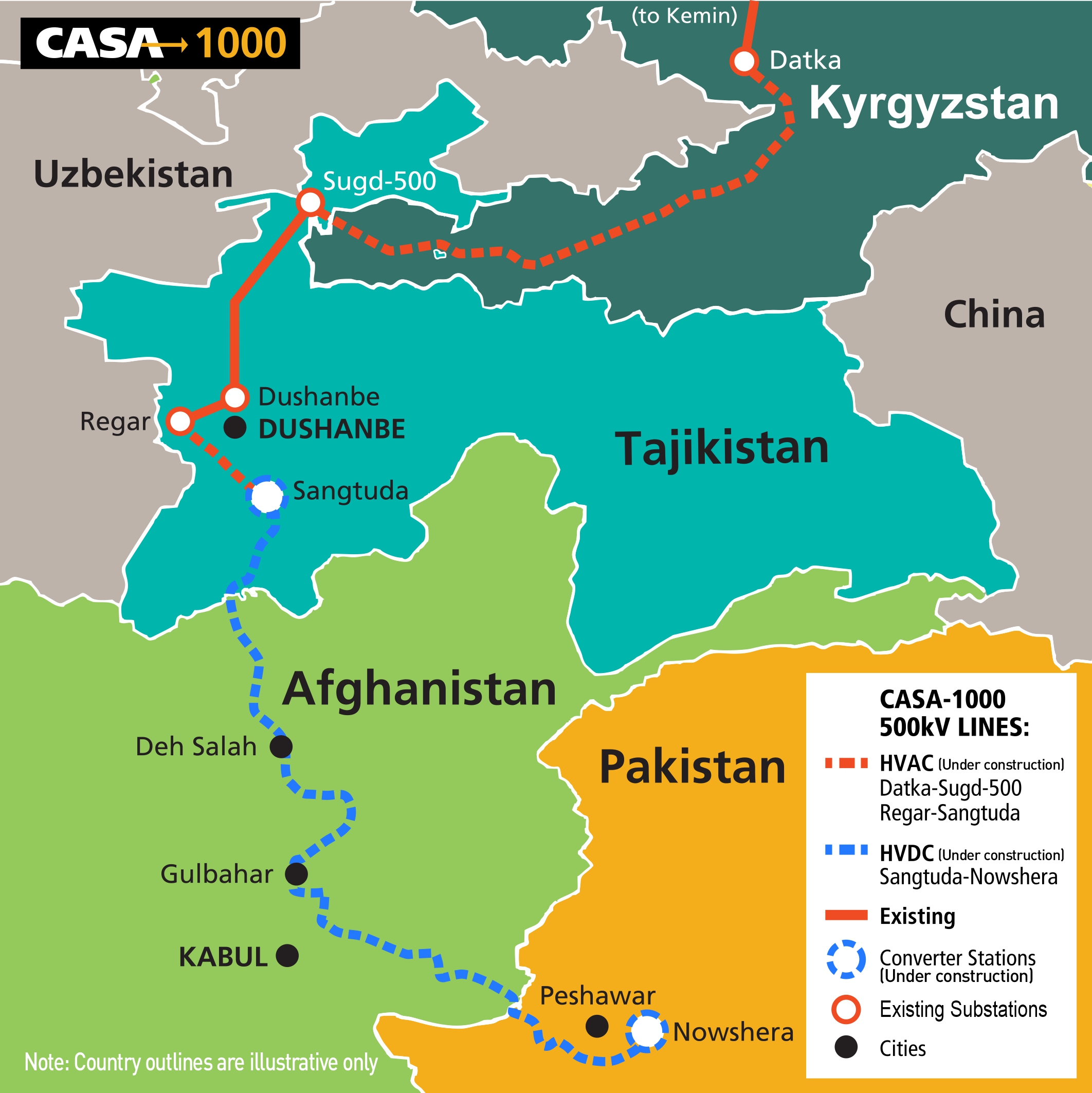The Ministry of Energy and Water's spokesperson announced the anticipated operational readiness of the CASA-1000 project by 2026. Upon completion, Afghanistan to earn an annual transit fee income of $75 mn.

The resumption of the electricity transmission project, which paused following the Islamic Emirate's rise to power, is on the horizon.
With a total investment of $1.2 bn, Afghanistan's share of the project costs amounts to $260 mn. During the tenure of the previous administration, the World Bank contributed $160 mn towards these expenses.

The CASA-1000 transmission route, spanning 600 sites across 33 districts in provinces including Kunduz, Panjshir, Kapisa, Kabul, Laghman, and Nangarhar, ensures that these regions will benefit from the electricity supplied. Economist Sayed Masoud points to the strategic leverage and regional significance the project entails, noting its potential to bolster Afghanistan's transit authority and signify a reactivation of World Bank engagement in the region.
Initiated in 2008 with a Memorandum of Understanding (MoU) signed in 2010 and contracts among Kyrgyzstan, Tajikistan, Afghanistan, and Pakistan established in 2018, the CASA-1000 project is a pivotal step toward enhancing electricity transfer from Central Asia to South Asia. The Central Bank of Afghanistan anticipates an additional $40 mn in infrastructure projects along the transmission line, underscoring the project's broad economic impact.
Follow Daryo's official Instagram and Twitter pages to keep current on world news.
Comments (0)